For Choice in Education
Kindergarten
The Kindergartens at Ringwood Waldorf School provide a secure, inspiring and nurturing learning environment for children aged three to six years old. Our educational principles, policy and practice are based on and informed by the Waldorf Early Years curriculum and framework. Each of the four Kindergartens is held by specially trained Kindergarten teacher and at least one trained assistant. Three of our Kindergartens welcome a mixed age group of children from three to six years, and our new fourth kindergarten has been developed for younger children aged three to four years.
The Kindergartens
We strive to give each child the best possible start in life and the individual support that enables them to unfold their potential, as well as providing a solid foundation step for all their future learning. The foundation skills in literacy and numeracy are laid through an environment rich in hands-on activity and play and where language and communication are enabled through a rich oral tradition. The Steiner Waldorf Early Childhood curriculum is broad and well established, and ensures that each child is supported to unfold their potential and develop skills and attributes required for their next steps in learning. We provide plenty of time and opportunity to develop socially, emotionally and physically in a creative, secure, enabling and harmonious environment. The Steiner Waldorf Early Childhood curriculum is woven into the daily, weekly and seasonal rhythms, and combines elements of child-led play and adult-led activities.
A Kindergarten group feels much like a large family unit in a beautiful home, and this provides security for the young children under its wing. Children are welcomed in the morning by their caring teachers, and enter a space which they come to know and love. The simplicity, beauty, order and openness in the kindergarten can help a child to feel secure and relaxed, and allows for free movement and child initiated play. The Kindergarten day follows a consistent and rhythmic pattern, and the strong sense of routine enables the children to know what to expect and also fosters a sense of security. The day begins with a period of free creative play, and alongside this the teacher introduces an activity for each day, for example painting or baking.
The day flows with regular and repetitive activity, such as circle time, which includes songs and rhythmical verses, music and movement. The snack, prepared by adults and children, is shared together around the table, where the mood is relaxed and social. The food is organic and local wherever possible. Other activities include painting, drawing, crafts and the domestic arts such as cooking, baking, cleaning and care for self and others. The tradition of oral storytelling and puppetry are a part of the morning. Very careful consideration is also given to the impact of everything in the Kindergarten environment upon all the senses of a young child. There are no ‘hard’ corners, carefully chosen colours, and all the furniture and toys are made of natural materials, as is most of the equipment like beeswax crayons and sheeps’ fleece. Our Kindergartens have a protected and safe natural outdoor area where children spend part of each morning. The outdoor environment enhances their learning and provides a setting for explorative play, movement, gardening and connection with the natural world around us. The festivals, seasonal and cultural, are celebrated, and often parents are invited to participate in them and other events in the Kindergarten.
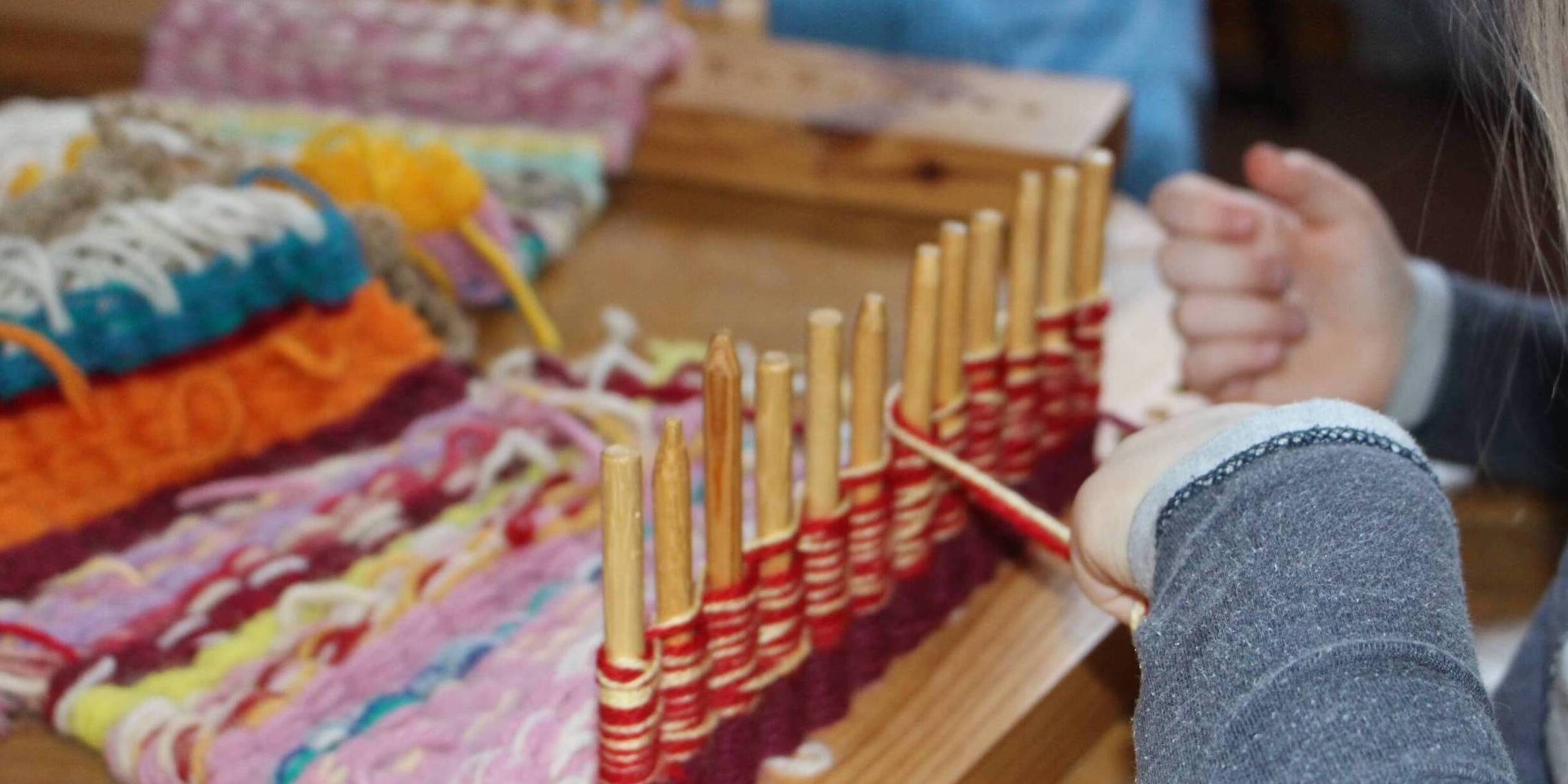
Kindergarten Core Values
- Childhood is valued as the foundation of a healthy, productive life.
- Each child is seen as unique, competent and capable.
- We honour, protect and nurture the physical, emotional, intellectual and spiritual aspects of the developing child.
- An inspiring and enriching environment is created, in which children are involved in their own development and learning; we foster imagination, creativity and a lifelong love of learning.
- Everybody is respected, valued and listened to. We celebrate our diverse community.
- We strive to provide the best outcome for each child in a learning community and create a solid foundation step for their future learning.
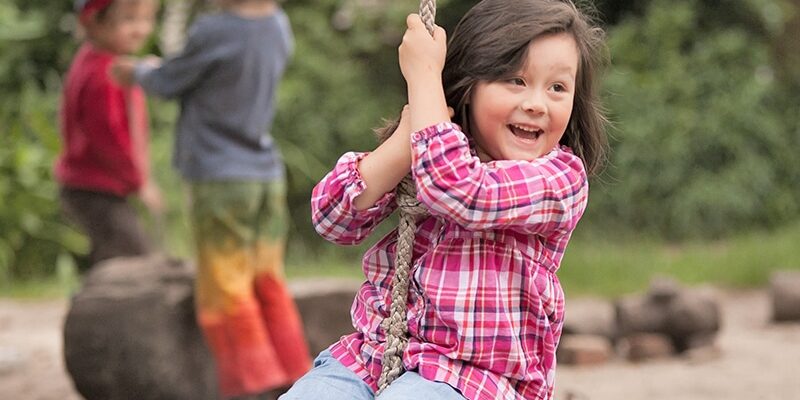
The Statutory Early Years Foundation Stage (EYFS)
The Statutory Early Years Foundation Stage 2023 (EYFS) Birth – 5 years, applies to all settings including ours. It sets out both learning and development requirements and safeguarding and welfare requirements for children from birth to 31 August following their fifth birthday. You can find out more about how we meet the requirements of the EYFS in our curriculum documents or by speaking with the Kindergarten Teachers.
Because there are areas which conflict with Steiner Waldorf established early childhood principles and practice, we have been granted some ‘Exemptions and Modifications’ to the EYFS Learning and Development requirements and Assessment regulations under the ‘Established Principles’ route for Steiner Waldorf settings. These are mostly to do with the introduction and in some cases formal teaching of reading, writing, mathematics and use of IT/media and electronic devices. There is no exemption from the safeguarding and welfare requirements. (See list of Exemptions and Modifications in the kindergarten).
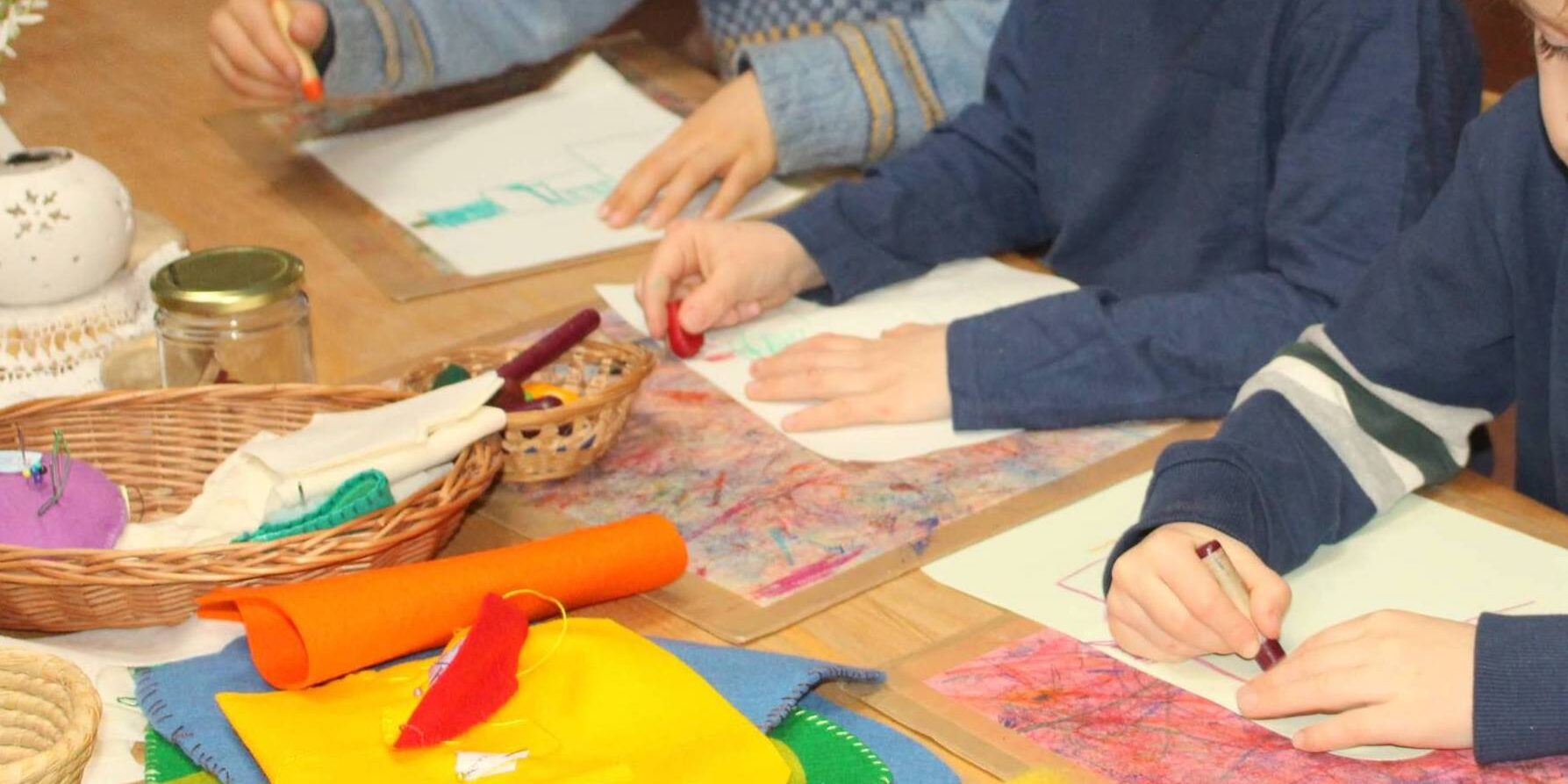
Key Person Statement
Children thrive from a base of loving and secure relationships. This is normally provided by a child’s parents, guardians or carers, but it can also be provided by a key person in an early years setting. A key person is a named member of staff with responsibilities for a group of children, who helps those children in the group feel safe and cared for. The key person responds sensitively to children’s feelings and behaviours and meets emotional needs by giving reassurance, such as when they are new to a setting or class, and supporting the child’s well-being. The key person supports physical needs too, helping with self care activities like nappy changing, toileting and dressing. The key person is a familiar figure who is accessible and available as a point of contact for parents, and who builds relationships with the child and parents or carers. The key person is someone that parents can talk to about any concerns, as they will know each child well and will be able to provide advice and support with all aspects of learning and development. The key person role is important. Research and evidence show that children thrive when their needs are met by special people that they know, trust and respect.
In the Steiner Waldorf Kindergarten, the overall Key Person role (See EYFS 1.16, 3.27) is held by the Kindergarten Teacher, who has the overview of all the children in their group. It is the Kindergarten Teacher who will write up the assessments, reports, and feedback to parents.
At Ringwood Waldorf School, we believe that in order to best meet the individual needs of each child, and to properly observe and assess their learning and development, children benefit from small key person groups. Therefore the Kindergarten Assistant or other adult will be given some Key Person duties in respect of certain children in the group, and they will share information with the Kindergarten Teacher on a regular basis. All staff who are with the children have an opportunity to talk about their observations of the children with the Kindergarten Teacher. These observations inform the assessments, and these are shared with staff and parents on a regular basis by the Kindergarten Teacher.
The Kindergarten Teacher will inform parents and/or carers of the name of the key person, and explain their role, when a child starts attending the Kindergarten.
The Kindergarten Teacher also receives feedback on the children from the parents and/or carers, and engages their support in guiding their child’s development at home. Teachers will support parents and/or carers to engage with more specialist support if appropriate.
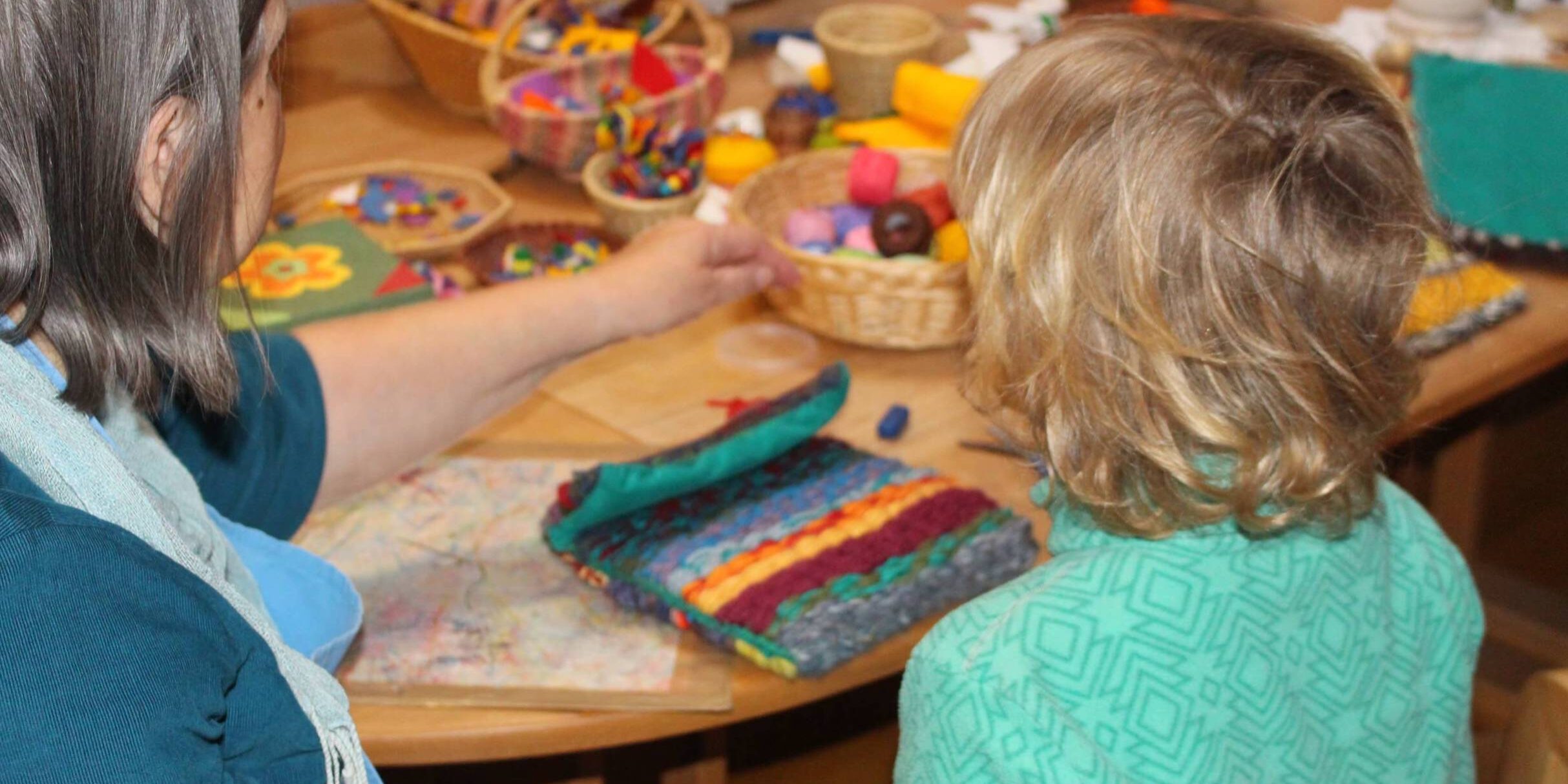
Curriculum
The Early Years curriculum supports and values the benefits of an unfettered, un-hurried childhood. The children are allowed space to develop physical coordination and personal, social and cognitive skills without being rushed. The focus is on child-led play with simple props to encourage creativity, ingenuity and problem solving skills. For example a block of wood can be a ship, a telephone, or a loaf of bread.
Free play is interwoven with more structured, hands-on activities with an emphasis on domestic, artistic and craft activities to emulate a lively extended family where children can learn through imitation – the easiest and most natural way for the young child to learn. They sing, paint, draw and move to music. They listen to stories told by the teacher, create puppet shows and little plays; bake, grind flour and help prepare their daily snack. They plant and harvest and tend the gardens; weave, sew and use simple tools. Festivals, so significant in creating community, are a major part of kindergarten life, with parents joining in the celebration. The patterns and routines of the day run through the week and the year and many of the activities follow the cycle of the seasons and the celebration of festivals.
The Early Years curriculum is based on the understanding that:
- imitation and activity are the young child’s natural way of learning
- activities aim to develop motor skills, speech, awareness of others and self-regulation
- collaboration in play, the sharing of food and other activities promote social development
- experiencing the natural world and sharing responsibility for such things as the care of their environment, for cleaning and tidying and for the preparation of food fosters responsibility, respect and self-reliance
- participation in the celebration of festivals inspires a sense of awe and reverence.
The Early Years curriculum includes the following foundations for effective learning:
- pre-literacy: songs, rhymes, stories, social engagement through play and at snack time, mark making and emergent literacy, reading the pictures in books
- gross motor skills: in dance and movement, outdoor play, ring time and building
- fine motor skills: in play, sewing, finger knitting, baking, painting, drawing
- pre-numeracy skills: counting songs, counting and measuring opportunities in play and snack preparation, exploring shape and numbers in drawing, crafts and play
- science: experiencing nature in the outdoors, nature table, seasonal songs and verses, food preparation and seasonal cooking, colour spectrum through painting
- technology: the use of simple hand tools in craft, woodwork and cookery
- art and crafts: painting, drawing, model making, sewing, weaving, woodwork
- music: daily singing, use of instruments
- eurythmy: weekly specialist led eurythmy sessions
- pupils will be taught about online safety through storytelling and parental support
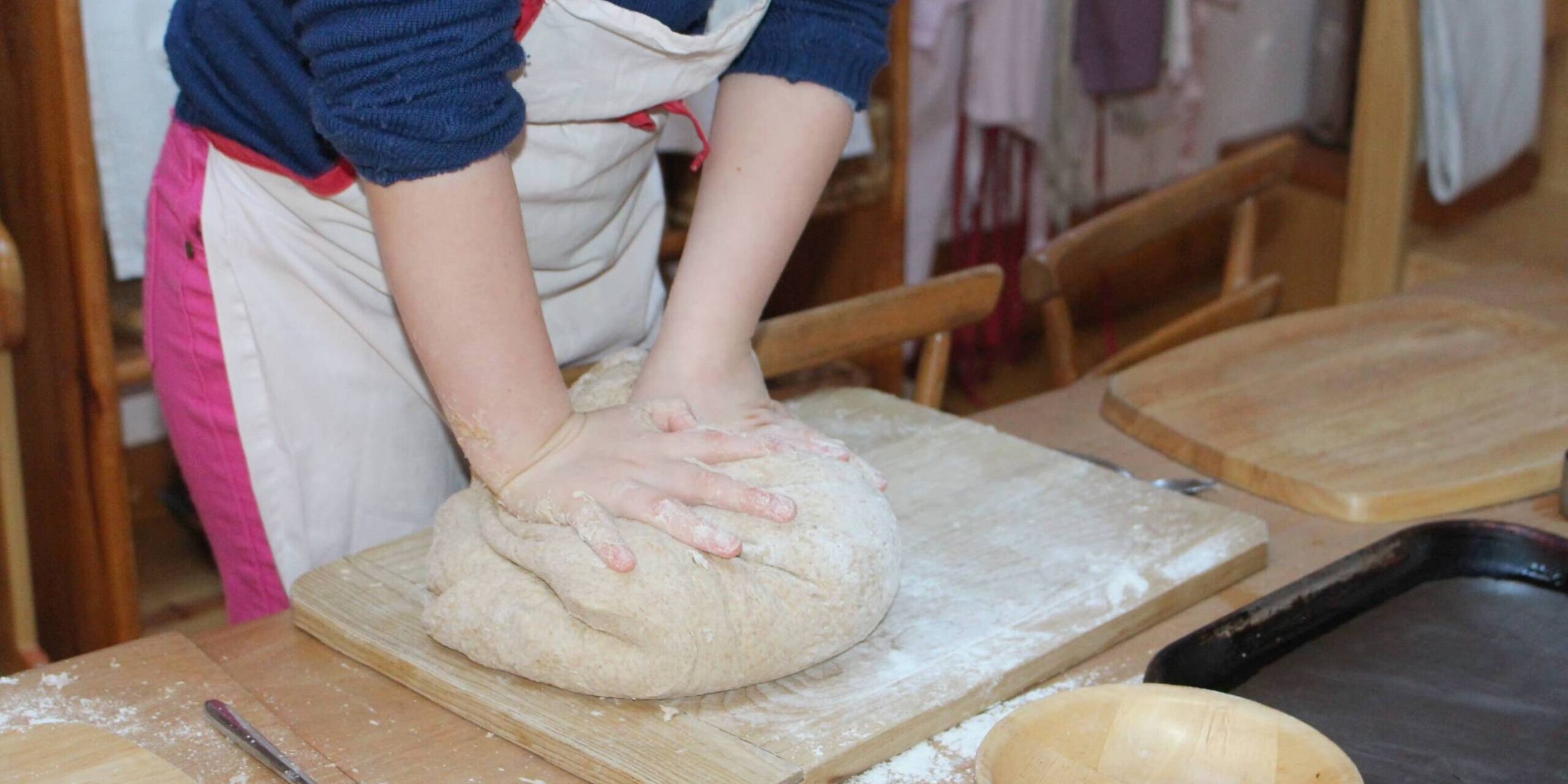
Curriculum - 5 to 6 Years
Steiner Waldorf kindergartens include a broad age range, and children remain within the ‘kindergarten phase’ (the first phase of childhood) from 3-6 years old. The curriculum for their last year in the kindergarten is differentiated, and there are certain expectations of the older child. In a Steiner Waldorf school, ‘formal education’ begins in Class 1 at age 6-7 years.
Children reach compulsory school age from the start of the term following their fifth birthday and by this age should be attending kindergarten full time. We recognise that they need a more challenging experience, including raised expectations from the adults in the setting, and a programme of work appropriate to their age (Key Stage 1 in other school settings). We provide activities and projects especially focused on the older children in kindergarten, and the new expectations of the staff relating to how the older children collaborate and contribute in a more structured and reliable way to the kindergarten community is vital. Teachers expect the children to show good progress beyond the EYFS. They provide support as children build on what they already know and can do, and take on progressive new tasks and challenges. Children in their last year of kindergarten attend ‘Stepping Stones’, our afternoon session for 5-6 year olds.
We have collated all of this into curriculum documents for those children of statutory school age which shows progression from the EYFS, differentiation, what we expect of the older children and what and how they will learn through the curriculum provided. Parents will be kept informed of their child’s developmental progress throughout their time in the kindergarten and will be asked to contribute to the observations and assessments of their child.
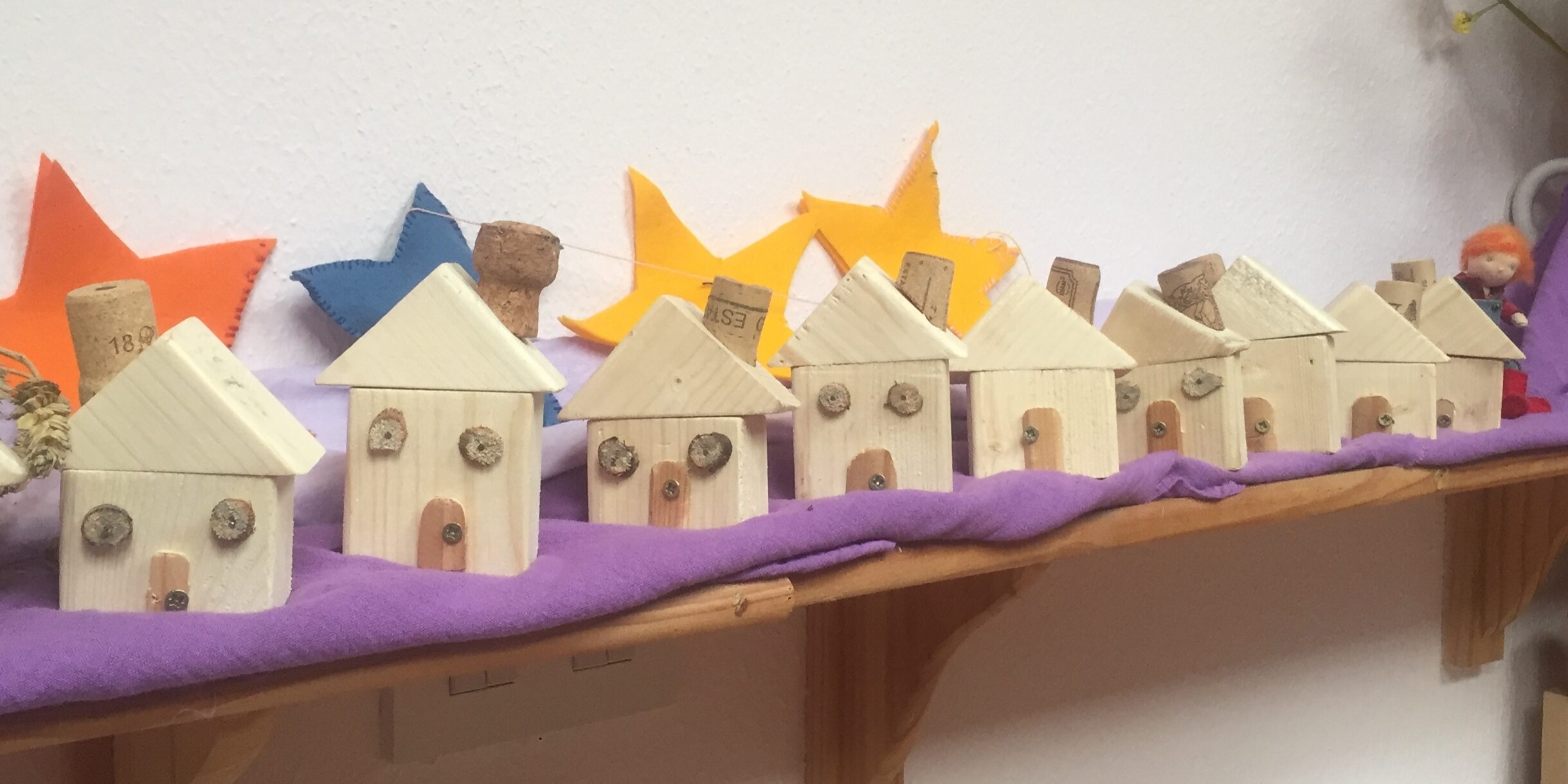
Kindergarten Afternoon Session
Afternoon sessions are on Monday, Tuesday, Wednesday and Friday from 12.45pm - 3.30pm and take place in Kindergarten. The cost of each session is £14 (£16 for 2024-25) if booked termly in advance and includes a wholesome lunch such as vegetable soup and a roll or baked potato (we try to cater to the dietary needs of each child)
Lunch Club on Thursdays only
On Thursdays children can stay in kindergarten until 2pm. They will need to bring their own packed lunch and the cost is £5 (£7 for 2024-25) per session.
Some ad hoc afternoons may be booked subjected to availability. Please talk to the Office to check availability.
Please Note!
Tuesday afternoons are now fully booked. Please complete the form if you would like your child to be put on the waitlist.
Kindergarten Lunch Club
Lunch club sessions are available on Thursdays in Kindergarten until 2pm.
Lunch is not provided on this day and children will need to bring a wholesome packed lunch with them.
The cost for Thursdays is £5.

